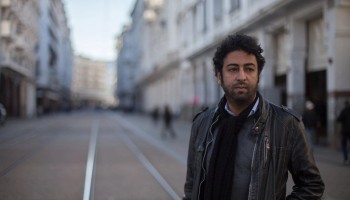The NUJ, a union that represents media workers in the U.K., condemned what it sees as a “concerning police culture,” wherein authorities have increasingly resorted to intimidation tactics against journalists, while citing public safety as a shield for their actions.
“The UK government cannot on one hand state its commitment to valuing media freedom whilst endorsing the targeting of journalists through raids and seizures of journalistic material in this manner,” said NUJ general secretary Michelle Stanistreet.
The media union highlighted that the failure of police officers to “sufficiently outline the apparent pursuit journalists” has had a chilling effect on journalism and damages press freedoms.
One example of abuse cited was a Metropolitan Police raid on the home of Asa Winstanley, an associate editor at Electronic Intifada, on Oct. 17.
Counterterrorism officers stormed Winstanley's home before dawn and seized several of his personal electronic devices. In a letter addressed to him, police said that he was under investigation for “possible offenses” under Sections 1 and 2 of the country’s 2006 Terrorism Act, which set out provisions for what constitutes “encouragement of terrorism.”
But despite the raid and the seizure of his devices, Winstanley was ultimately neither arrested nor charged.
An officer at the scene later told him that the investigation was connected to his social media posts, in which he has criticized the U.K. government’s support for Israel’s actions against the Palestinian people.
Following this, police refused to give any further statements.
In 2007, Human Rights Watch argued that the U.K.’s legal definition of “encouragement of terrorism” under the 2006 Terrorism Act is overly broad and pointed to passages that protect any police action against what is “likely to be understood” as an act of terrorism.
Winstanley is not the first to be targeted under the country’s anti-terror law.
In August, Grayzone journalist Richard Medhurst was detained for 24 hours upon arrival at London’s Heathrow Airport, and also had his electronic devices seized by the police.
His detention, which was allegedly over his reporting on the war in Gaza, sparked similar expressions of concern from the NUJ and the International Federation of Journalists.
“Journalistic integrity must be maintained,” Stanistreet said. “Any misuse of UK anti-terror legislation poses a significant risk to journalists and journalism and brings shame on the world stage as one where public interest journalism and a diverse media is stymied."






